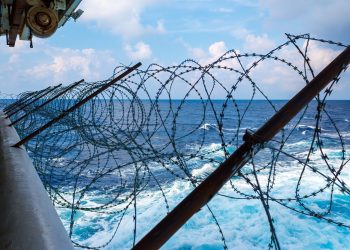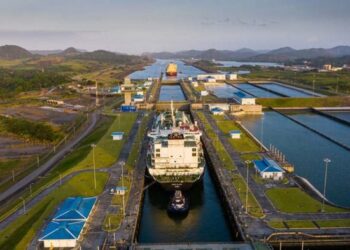Finland informed that the legislation on the delivery of waste from ships to ports will be updated. The aim is to improve the treatment and reception of waste in ports, which will reduce the generation of marine litter and consequently the discharge of plastic into the seas.
Amendments will be made to the Act on Environmental Protection in Maritime Transport, as required by the June 2019 revision of the EU Directive on port reception facilities for the delivery of waste from ships.
The arrangements for the payment of a waste fee will also be reformed to make sure that the waste will be delivered to the port on a regular basis.
The Directive harmonises the EU legislation with the MARPOL Convention of the IMO for the Prevention of Pollution from Ships. The key concepts like advance waste notification, delivery of waste to reception facilities and the adequacy of the facilities will also be clarified.
In addition, the provisions on exemptions for ships in scheduled traffic will be harmonised. In future, the definition of waste from ships will also regard new waste categories according to Annex VI to MARPOL, in particular residues from exhaust gas cleaning systems.
Changes to waste fees
The payment of waste fees will be reformed as well. A fee will be introduced across the EU that will give the right to ships to deliver all garbage on board to a port regardless of the amount of waste left in the port by the ship. Such a system is already established in the Baltic Sea countries, including Finland. In Finland, the payment of fees based on the recommendation of the Commission for the Protection of the Marine Environment of the Baltic Sea (HELCOM) covers not only garbage but also oily waste and sewage.
[smlsubform prepend=”GET THE SAFETY4SEA IN YOUR INBOX!” showname=false emailtxt=”” emailholder=”Enter your email address” showsubmit=true submittxt=”Submit” jsthanks=false thankyou=”Thank you for subscribing to our mailing list”]
Moreover, fishing and recreational craft are also included in the payment system defined in the Directive. In future, the port charges must also cover the reception of waste from these ships, irrespective of the quantity involved. The payment system system also covers waste collected in nets during fishing operations.
In addition, fishing and recreational vessels of over 45 metres in length will be required to submit an advance waste notification.
Separate collection of different types of waste from ships will have to be arranged in ports. For example, garbage will be separated on board ships in accordance with international rules. The separate collection can be used to make sure that the waste will be recycled or reused. In the future, ports will have to grant discounts on waste fees to ships that manage their waste in an environmentally friendly manner.
Further monitoring
Monitoring will also be increased, as in the future, at least 15% of the total number of individual ships calling in the ports annually will be inspected. The monitoring of ships will follow a risk-based approach.
The legislative project also assesses the possibility of extending the introduction of administrative sanctions to cover ships breaching the emission requirements, for example with regard to sulphur emissions. The aim is to introduce the legislative amendments required by the Hong Kong International Convention for the Safe and Environmentally Sound Recycling of Ships.
What is the future?
Finland is now preparing legislation that will bring into force the amendments required by the Directive in Finland. During the project, consultation events will be arranged for the key stakeholders.
The target is to submit a draft government proposal for comments in spring 2020. The legislative amendments will apply no later than June 2021. The progress of the project can be monitored through the Gateway to Information on Government Projects.
In order to tackle the problem of plastics in the sea, an alliance of global companies from the plastics and consumer goods value chain launched a new organization to advance solutions to eliminate plastic waste, mostly in the ocean environment. The cross value chain Alliance to End Plastic Waste (AEPW), currently made up of nearly 30 member companies, has committed over $1 billion with the goal of investing $1.5 billion over the next five years to help end plastic waste in the environment.
The Alliance seeks to develop and bring to scale solutions that will minimize and manage plastic waste and promote solutions for used plastics by helping to enable a circular economy. The Alliance membership represents global companies and located throughout North and South America, Europe, Asia, Southeast Asia, Africa, and the Middle East.
Nevertheless, recently the Court of Justice of the European Union (the CJEU) confirmed that waste from ships is not subject to the requirements of EU law on transfer of waste. The legal case arose from the fire on board the MSC Flaminia in 2012.






























































